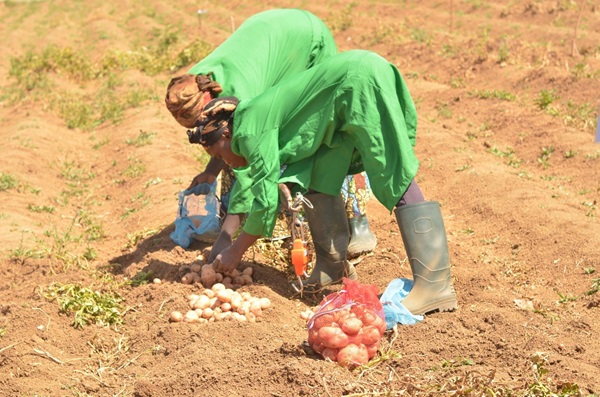
The Global Biotechnology Potato Partnership (GBPP) is catalysing significant advancements in Nigeria’s biotechnology sector, offering local scientists and researchers the opportunity to deepen their capacity in genetic modification (GM) techniques, according to Dr. Charles Amadi.
As the principal investigator of the GBPP project in Nigeria, operating under the USAID-funded Feed the Future Project, Amadi highlighted the transformative impact of the partnership during a presentation at the 2024 Annual Review and Planning workshop of the National Root Crop Research Institute in Umudike, Nigeria.
Amadi emphasised that the GBPP project has provided Nigerian researchers with essential training and expertise, enabling them to undertake crucial biotechnology initiatives within Nigeria itself. This shift marks a groundbreaking development, as previously, such transformations often required researchers to travel abroad for training and implementation.
He underscored that the project’s focus extends beyond potatoes, laying the groundwork for similar advancements in other crops across Nigeria.
Furthermore, Amadi revealed that the GBPP project has facilitated the training of Nigerian scientists in potato biotechnology, empowering them to develop biotech potatoes locally. Equipment necessary for the transformation of farmer-preferred potato varieties is also being acquired through the project’s support.
In assessing the project’s progress, Amadi highlighted promising results, with identified biotech potato candidates exhibiting remarkable resilience to late blight—a common potato disease. These candidates have demonstrated yields over 300 per cent higher than conventional varieties when no fungicide is applied, signalling a potential breakthrough for potato farmers in Nigeria.
The trials conducted across various locations in Nigeria have showcased the resilience of biotech potatoes to late blight attacks, even without fungicide application, leading to increased yields and farmer satisfaction.
Amadi emphasised the profound impact of late blight on potato farmers in Nigeria, noting that many have faced significant challenges due to the disease’s prevalence and the high cost of fungicides. The GBPP project offers a promising solution to these longstanding issues, revitalizing Nigeria’s potato farming sector.
The achievements of the GBPP project underscore the transformative potential of biotechnology in enhancing food security and agricultural productivity in Nigeria and beyond. Through strategic partnerships and capacity-building initiatives, the project is driving innovation and empowerment within Nigeria’s scientific community, paving the way for sustainable agricultural development.


